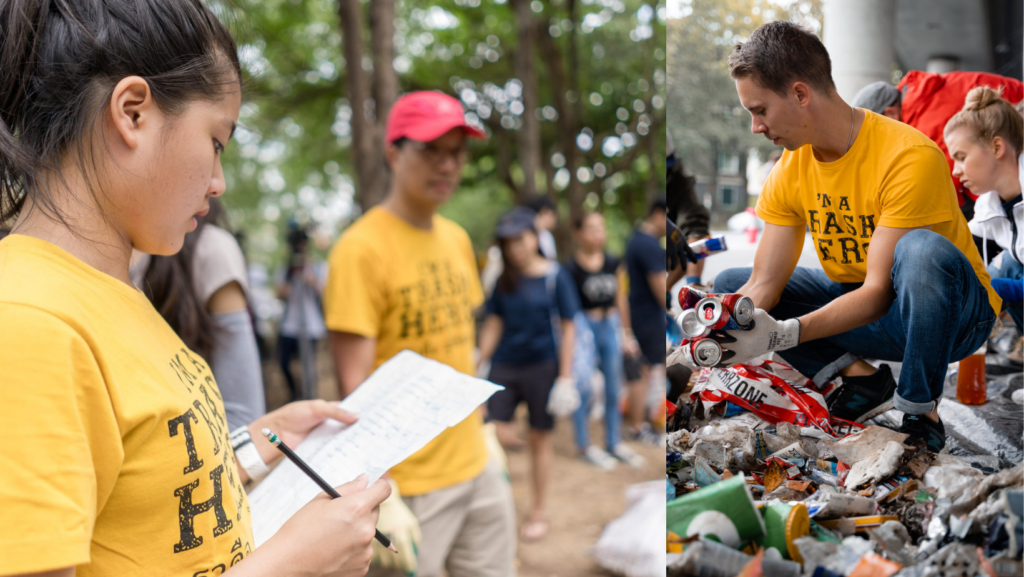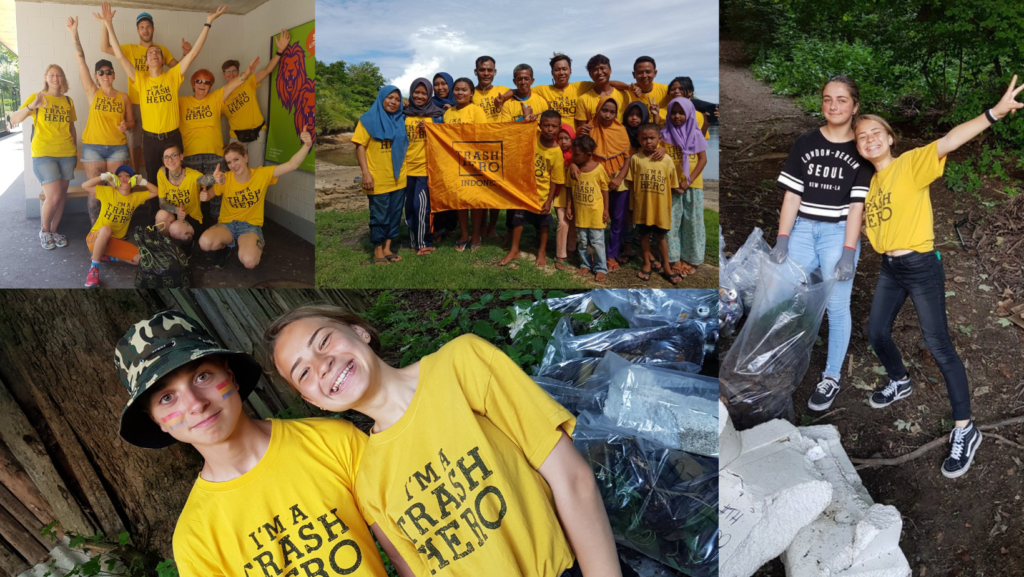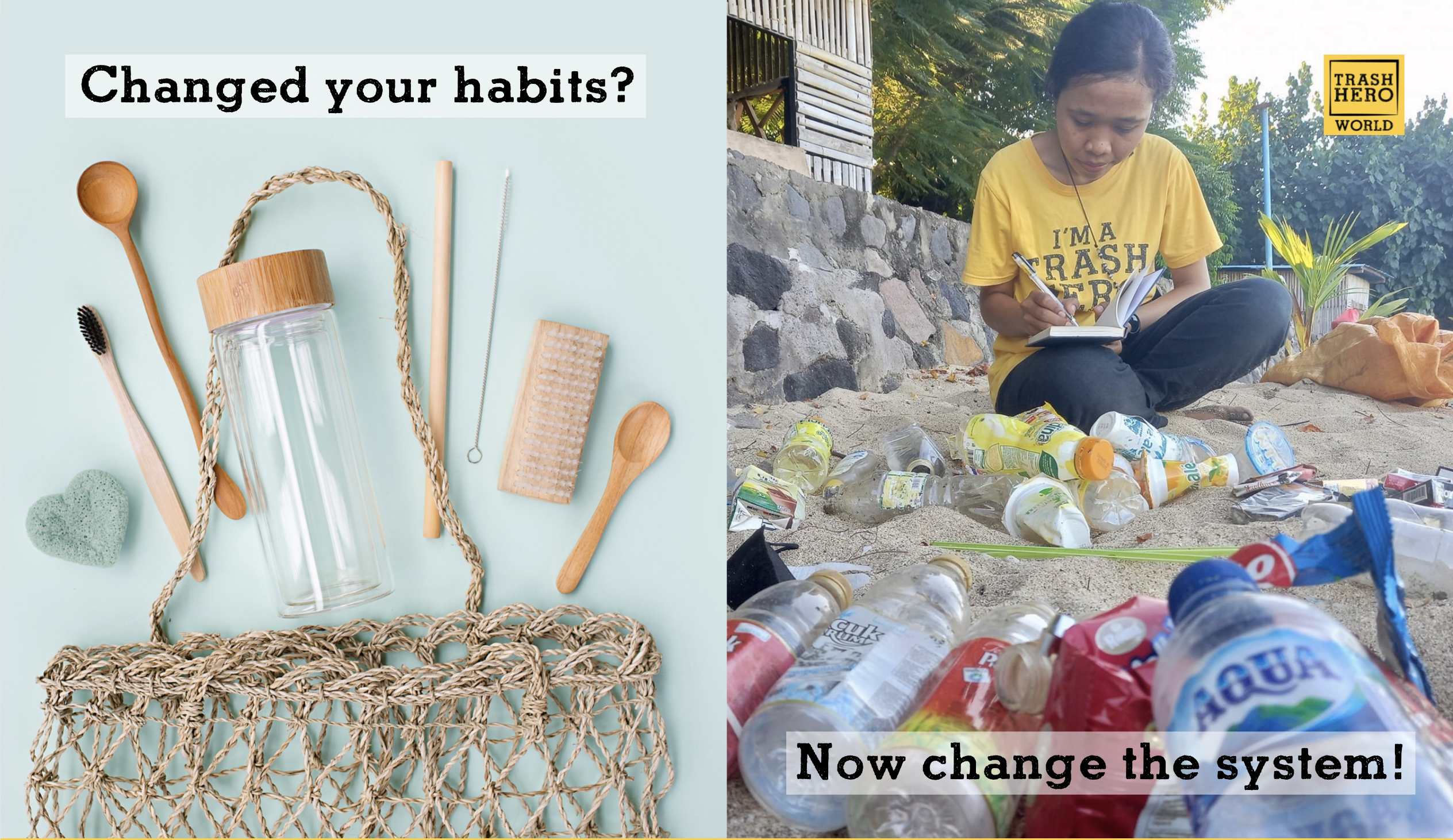Changed your habits? Now it’s time to change the world!
Lists of advice on how to reduce your plastic use are all over the internet. If you’re reading this, perhaps you already own a bamboo toothbrush, carry a reusable bottle and bag and shop at refill stores. Maybe you separate your waste like a pro and made other zero waste swaps that have reduced the amount of plastic you use in your day-to-day life. In which case, congratulations! It’s not always easy, but being the change you want to see and leading by example are the best way to start your journey to reduce plastic pollution.
Everything you do in this respect helps to normalise the concepts of reuse and refill and hopefully inspires others to do the same.
But although you are doing your part, it might feel like nothing is changing in the wider world: in the news, you see there are still millions of tonnes of plastic being produced each year. Other than avoiding plastic in our own lives, what can we do to stop this?
As individuals it may feel like there is not much we can do. But at Trash Hero, we have found there are there are many easy actions that can help get companies, communities and governments on board to support the reduction of single-use plastic.
We’re happy to share them with you here. If you are ready to go a step further on your zero waste journey, read on for our five top tips to reduce plastic in the world around us.
1. Learn to spot greenwashing

Greenwashing is when a business promotes its products or practices as “eco-friendly” or “sustainable” when actually they are not. Many cases of greenwashing are easy to spot, but some are much harder.
When a big company uses green colours, or images or language suggesting “nature” to market a product in throwaway packaging, this is a sure sign of greenwashing. But it can also be more subtle. Many fashion brands put out “sustainable” clothing lines and boast about their eco-credentials, when these products make up only a tiny percentage of their output.
You can find more examples and information on our greenwashing factsheet
Other resources include our handy toolkit for spotting greenwashing and a new website dedicated to the topic.
Why do we need to spot greenwashing at all? Because the practices give people the impression that something is being done about issues like plastic pollution and climate change. They allow companies to get away with doing, in reality, very little to solve environmental problems. Greenwashing is so prevalent and considered so serious that many companies are now being sued for making false claims about their sustainability.
If we can spot greenwashing and expose it to those around us, it helps to keep the pressure on companies to make real changes to the way they operate. You could even share your observations on social media!
2. Change the story

Since the 1970s companies have been pushing the blame for the pollution they cause onto consumers and governments. With single-use plastic, they tell a story about “litter” and “irresponsible people” and say the problem can be solved with education, better recycling and waste management.
The reality is that many multinational companies have designed pollution into their packaging and delivery systems. They continue to produce single-use plastic in the face of evidence that it is toxic, not easily recycled, damages our environment and causes climate change. Why? Because it is cheaper for them to do so: the old reuse and refill systems (that single-use plastics replaced) required having employees and infrastructure. Now, we are expected to throw packaging away and let someone else deal with it.
It is important that people understand they are not to blame for the current crisis. Instead, plastic pollution needs to be stopped at its source. Large companies can change the way they package their materials, ‘turning off the tap’ of plastic, not relying on public services to mop up their mess.
A great way to help others understand about the wider changes needed to solve the problem of plastic, is to share this short animation, The Story of Plastic. If you would like to know more, search for the full-length documentary version, which explores the issue in depth.
3. Do a brand audit

Another effective way of holding multinational companies accountable is to collect data about them. There is an easy way for individuals to get involved in this, in the Brand Audit Report, a global citizen science project organised by Break Free From Plastic.
A brand audit is ideally carried out on litter picked up at a cleanup, but it can also be done on items in your household trash. It involves recording the brand and type of each plastic item found. For example, how many plastic Coke bottles or how many plastic Nestle sachets there are. Break Free From Plastic have been organising brand audits since 2018 and from the data they collect they produce a report that identifies the top polluters. These yearly reports have played a huge part in shifting the narrative from plastic waste being the responsibility of citizens to that of the producers.
Contributing to this data is a fantastic way to increase the pressure on the top polluters to change the way they package their products.
Get in touch with your local Trash Hero chapter to see when they are next doing a brand audit or conduct your own! This year, you can send in your contribution up to the end of September.
4. Support a zero waste business

Maybe your favourite cafe gives a discount for bringing a reusable cup, or you have a local deli that lets you bring your own container for cheese or cooked meats. Businesses such as these are encouraging people to use less plastic and supporting a sustainable business model that undoubtedly has a positive impact on the environment.
When you find such a place, it’s a great idea to support them. Some ways to show support are to tell your friends about it, share their page on your social media or tell the staff that you support and love what they are doing. If you don’t have such a shop in your area, why not try starting a conversation about refills by asking if you can use your own cup or container and explaining why.
The more we support businesses that are implementing real solutions to the plastics crisis, the more that will open! And, consequently, more pressure will be put upon larger companies to do the same.
5. Become a Trash Hero

No cost, no sign up – just show up! It is that easy to become a Trash Hero.
Our Trash Hero chapters do weekly cleanups which have an immediate and positive impact on the environment. After each cleanup the volunteers come together to discuss the waste they have just removed and think about where it came from.
These activities allow us to engage with a wide range of people from the local community, which is a great way to get everyone from schools, businesses, families and local government thinking about waste – and hopefully, start to implement real changes to reduce the plastic they use.
Find a Trash Hero near you or get in touch to find out how to set up your own chapter.
Whatever you chose to do beyond changing your own lifestyle, the most important thing is that you are doing something. It can feel a little overwhelming at times, but remember small changes done by many people lead to big impacts! To keep yourself inspired make sure to follow us online and tag us in any tips you have to reduce plastic across the globe!


2 comments
Join the conversationTeresa - 22/04/2024
I always pick up trash wherever I go and put it in the garage can and Iam also a animal sanctuary and animal rescue I’m Teresa minor
Lydia - 23/04/2024
Great work, Teresa!